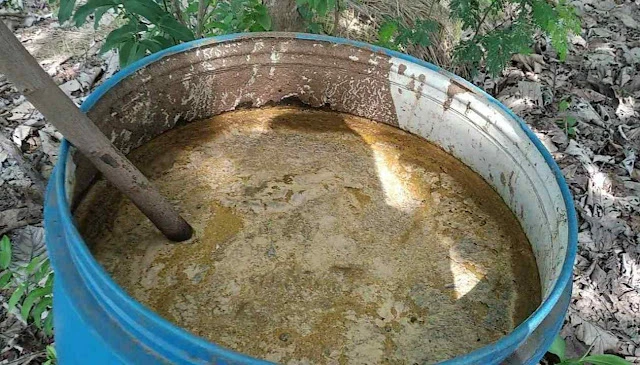- You have no items in your shopping cart
- Subtotal: ₹0.00
Everything you need to know about jeevamrut
In this article, we are going to discuss the benefits of using jeevamrut. As the name goes by, it is the elixir of life which helps plants to get an extra dose of nourishment they need. So, let’s dive right in!

Gardening is not just a hobby; it has profound effects on your physical and emotional health. Planting a seed, watching it sprout and transforming into a seedling then into a sapling is so satisfying to your soul. Growing your plants and expanding the garden takes a lot of time and patience. Apart from the hard work, you also need to be equipped with the knowledge that can be implemented to ensure better and faster growth of plants and to get better harvest too.
What is jeevamrut?
Available in liquid and solid form, jeevamrut is a rich source of essential nutrients such as nitrogen, natural carbon, phosphorus, potassium, and micronutrients. These are quite vital for the healthy growth of plants. Jivamrut Organic Slurry preparation is easier as compared to the preparation of compost and vermicompost. It can be used along with other manure to ensure faster growth of the plants.
How to Make jeevamrut
You need to follow the steps given below to make jeevamrut perfectly. You can modify the measurements as per the quantity of the solution you want to make. The following recipe is for a large batch of Jivamrut Organic Slurry, and it is done on a commercial level. Nonetheless, as mentioned earlier, you can change the measurements for raw materials to make the liquid for domestic purposes.
- For a large quantity of liquid Jivamrut Organic Slurry, 200 liters of water is required.
- Mix in 10kg of cow dung and 5 to 10 liter of cow urine. Add 2kg jaggery, 2 kg pulses flour and a handful of soil.
- Stir the mixture and keep it as it is in the shadow for 48 hours. Keep stirring the mixture at least for 10 minutes periodically. Post 48 hours, the fermentation process will be completed, and jeevamrut will be ready to use. You can use it in the time span of 2 to 3 days.
How to prepare solid Jeevamrut or Ghan jeevamrut
- You need to prepare a mixture of 100kg cow dung, 2kg jaggery, 2 kg pulses flour, and a handful of soil. Add a small amount of cow urine before spreading it in the sun to dry.
- Once the mixture is dried, crush the lumps by hand, and your solid jeevamrut is ready to use.
Benefits of Jeevamrut
Elevation of Soil Fertility
By adding helpful microbes like fungi, bacteria, and other microorganisms, Jivamrut Organic Slurry improves soil fertility. These microorganisms are essential for decomposing organic materials and liberating nutrients so that plants can use them.
Enhanced Nutrient Availability
Jeevamrut’s microorganisms aid in the breakdown of organic debris, which releases nitrogen, phosphate, and potassium—three important nutrients—into the soil. Plants can now get these nutrients more easily, which encourages robust development.
Enhanced Soil Structure
By raising the soil’s capacity for water retention, aeration, and drainage, regular application of Jeevamrut enhances the soil’s structure. Plant roots may grow and absorb nutrients and water more effectively in this ideal environment.
Suppresses Soil-Borne Diseases
The healthy bacteria in Jivamrut Organic Slurry aid in the suppression of diseases and dangerous pathogens that exist in the soil. They lessen the frequency of soil-borne illnesses by competing with organisms that cause disease for nutrients and available space.
Decreases Dependency on Chemical Fertilizers
Jeevamrut lessens the requirement for chemical fertilizers by increasing soil fertility and nutrient availability. In addition to helping farmers save money, this lessens the negative environmental effects of overusing synthetic fertilizers.
Encourages Sustainable Agriculture
A natural and sustainable substitute for chemical pesticides and fertilizers is Jivamrut Organic Slurry. Its use encourages organic farming methods, which are beneficial to the environment and aid in maintaining the health of the soil for coming generations.
Enhances Crop Yield and Quality
It has been suggested that regular use of Jeevamrut will boost crop yields and enhance produce quality. This is explained by increased plant nutrient intake, soil fertility, and pest and disease resistance.
Simple to Make Jivamrut Organic Slurry
Organic elements that are readily available in the area, such as soil, gram flour, jaggery, cow dung, and urine, can be used to simply make jeevamrut. This makes it affordable and available to farmers, particularly those engaged in subsistence or small-scale farming.
All things considered, Jeevamrut provides a comprehensive strategy for plant nutrition and soil health, supporting sustainable agricultural methods and better food production.
